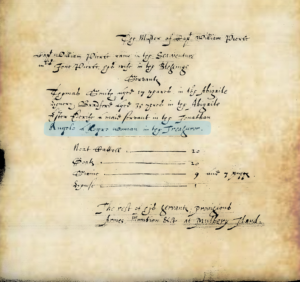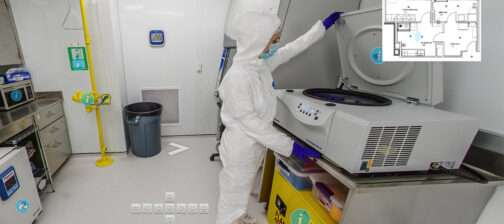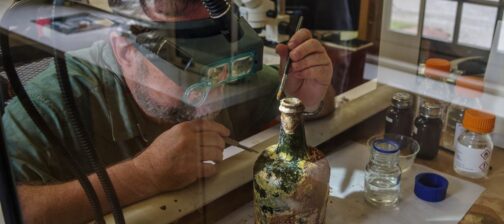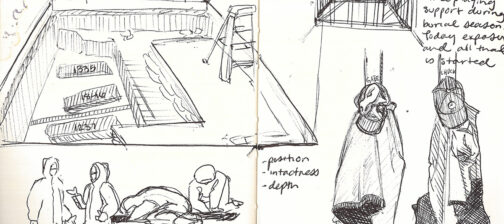Revealing the contradictions of the past
Author: Mark Summers, Public Historian & Director of Public & Youth Programs
In late August 1619, the first Africans arrived in Virginia. They were brought here forcibly by English privateers who pirated them from a Portuguese slave ship, which had originally captured them from the Ndongo Kingdom in what is now Angola. The Africans were then purchased by various planters along the James River. Nine lived and worked at Jamestown. One was known as “Angela.”

Throughout the year we commemorate various “firsts” or anniversaries of significant events in Jamestown’s history. Some anniversaries, such as the first General Assembly, have traditionally lent themselves to celebration. Others, such as the arrival of the enslaved Africans, reveal the contradictions between the ideals of Virginia and the harsh realities experienced by many.
So at a time of so much conflict and division in our society why discuss these difficult topics at Jamestown? Why raise difficult topics or themes that may bring up feelings of guilt or anger? Aren’t historic sites and museums places to escape the news with all its controversies?
The answer is that in the search for our past, we cannot escape our present. And on the other hand, our present is directly shaped by our past. What we like or do not like about our history is all mixed together like artifacts our archaeologists find in the ground. The stories we tell at Jamestown are made of pieces of history put together like a puzzle, but one that doesn’t always fit neatly together.
To recognize Jamestown as “America’s Birthplace” is to recognize it as a beginning for all Americans and a story of struggle. That some were forced to struggle more than others is an important part of our collective story and shouldn’t be ignored.
Learn more about the Angela Project in our latest Jamestown Rediscovery publication “Angela: Jamestown and the First Africans” available now in-stores and online.





